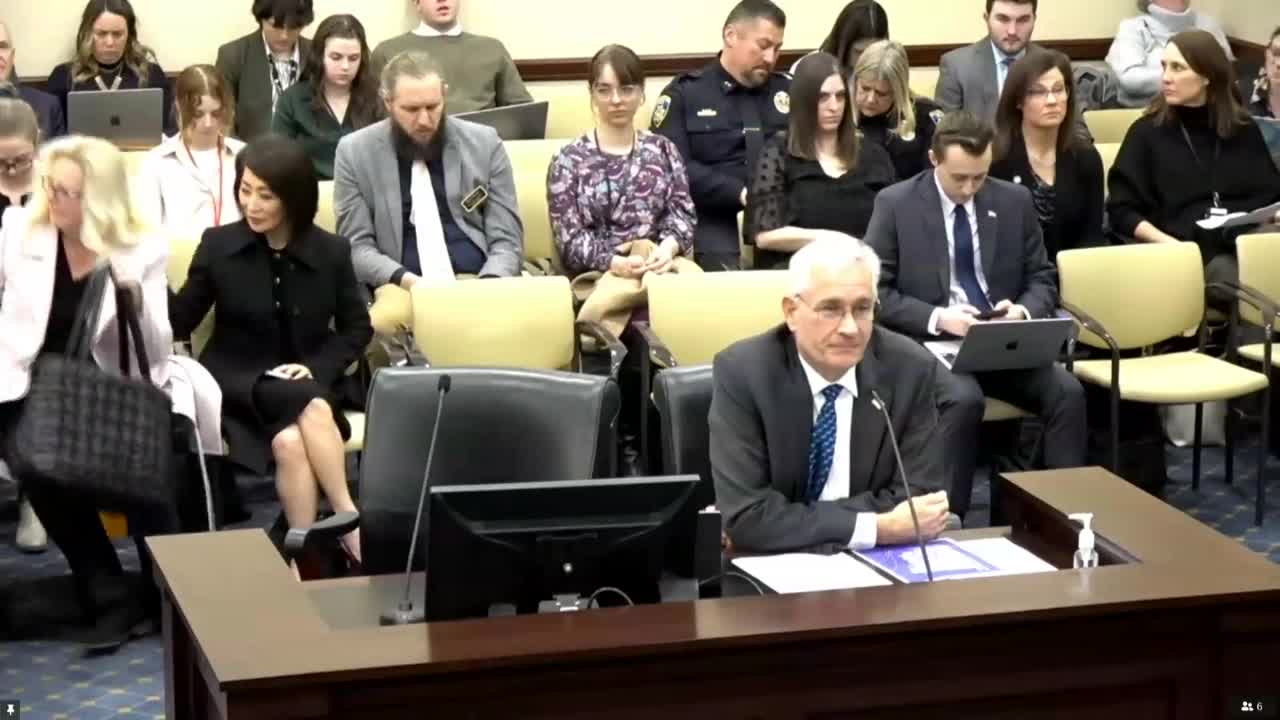Committee holds bill that would let cities get credits for local homelessness services; shelter cities warn of funding losses
Get AI-powered insights, summaries, and transcripts
Subscribe
Summary
Salt Lake City — The Political Subdivisions Committee on Jan. 22 heard hours of testimony on a bill that would allow cities to claim a credit against their required contributions to Utah's homelessness mitigation fund for qualifying local homelessness services.
Salt Lake City — The Political Subdivisions Committee on Jan. 22 heard hours of testimony on a bill by Representative Eric Abbott (sponsor identified in committee) that would let cities receive a credit against required contributions to the state's homelessness mitigation fund for each dollar they spend on qualifying local homelessness services.
Abbott told the committee the change aims to encourage cities that do not host low-barrier congregate shelters to invest in alternatives such as rapid rehousing, homeless prevention and other housing-based services. Under his proposal cities that provide qualifying services could reduce their payment into the mitigation fund by $0.50 for every $1.00 the city spends on those services, using the statutory criteria listed in Utah Code 35A-16-302.
"We know what works," Abbott told the committee, citing the Utah Statewide Collaboration for Change report, and urging incentives to expand housing-based solutions. He said congregate emergency shelters have had low exit rates into permanent housing and can add trauma for people experiencing homelessness.
Municipal representatives, shelter operators and homelessness-service providers urged caution. Molly Wheeler of the Utah League of Cities and Towns said the mitigation fund helps cities that host shelters cover substantial public-safety costs; she told the committee that fiscal-year 2024 showed roughly a $10 million deficit in public-safety expenses for shelter-hosting cities and that the 2025 fund was expected to be about $17.5 million, with about $10 million coming from municipal contributions and the remainder from a state match.
Sherry Wood, mayor of South Salt Lake City, said her city was mandated by the state to host a 300-bed men's resource center and later added a family non-congregate shelter; those facilities required the city to hire additional police and fire personnel to mitigate community impacts. "We were mandated the men's resource center," she said. "We will be hosting about 800 plus beds" in all, and the city incurred police and fire staffing costs as a result.
Midvale City Manager Matt Dahl and representatives of Shelter the Homeless urged the committee not to reduce mitigation funding. Dahl said Midvale had spent more than $3 million on affordable-housing projects and that the city still needed mitigation funding to provide public-safety services tied to shelter operations. Shelter operators said shelters provide case management, health and behavioral-health services and workforce services, and that policing around shelters is an essential support to both clients and neighboring communities.
Committee members probed whether the bill might penalize cities that have already taken on shelter responsibilities. Abbott responded that his plan tries to reduce the incentive to build ever-larger congregate shelters by encouraging cities to fund services that help people exit homelessness and remain in their home communities.
After public comment, Representative Altsch moved to hold HB 118. Committee roll call recorded the motion to hold, which passed 8 to 2. The transcript recorded the two "no" votes as Representative Tasher/Tusher and the chair; the committee chair announced the final tally as 8-2.
Clarifying details from testimony: Municipal witnesses said the mitigation fund reimburses public-safety costs tied to shelters, not shelter operations; city and shelter witnesses described increased law-enforcement and fire/EMS staffing tied to shelter openings. The League said the mitigation fund was designed to offset public-safety impacts of hosting shelters and that board principles included both reimbursing shelter-host cities and incentivizing other cities to participate.
Ending: Committee members and witnesses agreed homelessness requires multiple strategies; advocates for the sponsor argued incentives for housing-based services could reduce future shelter demand, while shelter-hosting cities and operators warned that changing mitigation formulas now could harm cities already bearing public-safety costs. The committee decided to hold the bill for further consideration.
